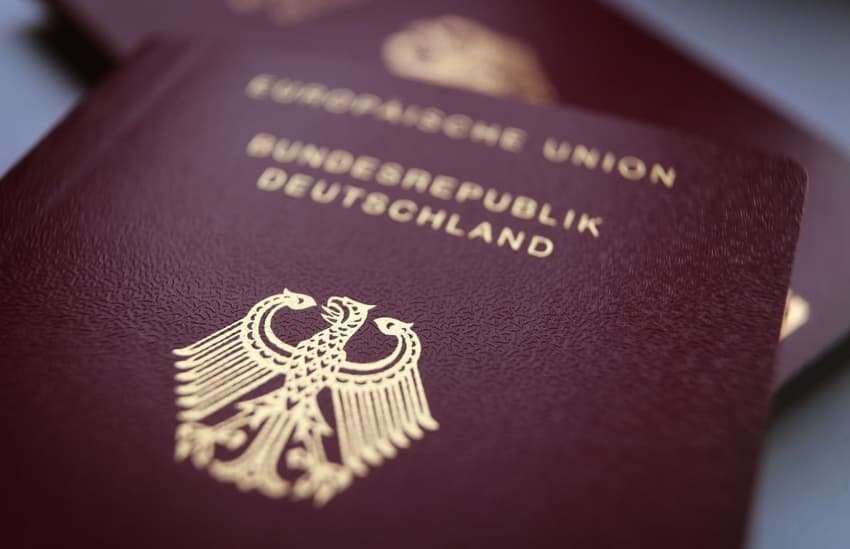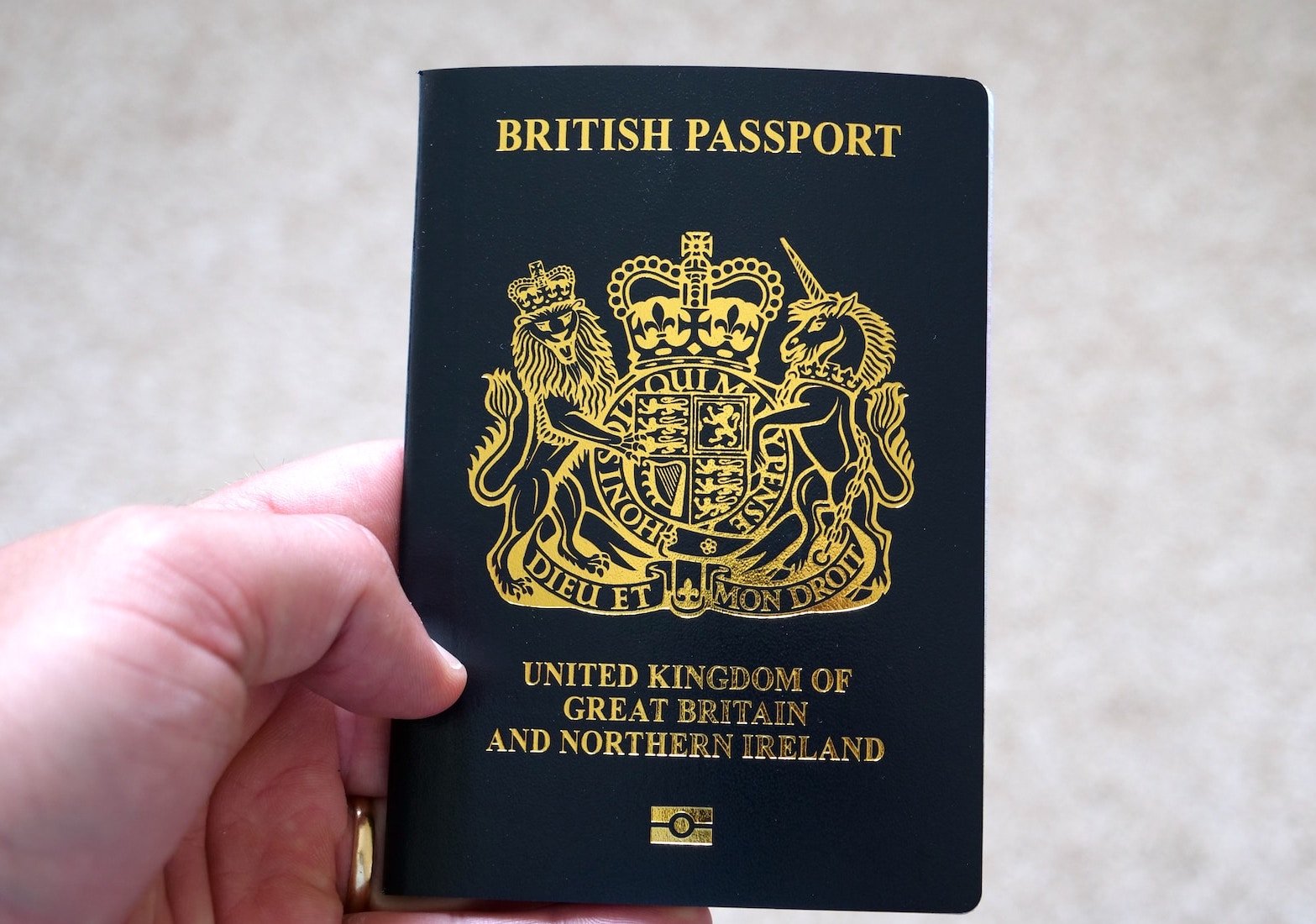KEY POINTS: What you need to know about Germany's citizenship law reform

President Frank Walter-Steinmeier gave the bill the final seal of approval on Tuesday, paving the way for all foreigners in Germany to be allowed to keep their original nationality when they become German. Here's a look at key aspects of the reform.
What's happening?
It's been a long time coming, but Germany finally took a major step forward on Tuesday, with President Steinmeier and Chancellor Olaf Scholz signing the new citizenship bill into law. On February 2nd, the law has been approved in the Bundesrat.
READ ALSO: Germany's dual nationality law approved by president
The law was originally negotiated in 2021's governing coalition agreement between the Social Democrats, Greens, and Free Democrats and has faced several delays.
Opposition parties including the Christian Democrats (CDU) and its Bavarian sister party the CSU are against allowing dual citizenship and reforming the law.
However, the law received a majority of votes in the Bundestag, and the Bundesrat, which represents the states also approved the law.
The legislation will will be signed into law and head to an implementation period, which usually lasts three months.
READ ALSO: What are the next steps for Germany's new dual citizenship law?
It is expected that law will come into force in May.
Here's a look at the key points of the law:
Multiple nationalities allowed for all - including Germans acquiring citizenship
Arguably, the headliner of the new law is that non-EU citizens won't face having to give up their original nationality when becoming German.
Holding dual - or even multiple - nationalities will be allowed by Germany when the naturalisation law comes into force.
Up to this point, many people from outside the EU had to give up their existing passport when becoming German.
There are exceptions, for instance for EU nationals, refugees, people from countries that don't allow citizenship to be revoked, and people who could prove that they'd face economic or personal hardship as a result of giving up their nationality.
But this is going to change.
"In future, everyone applying to become a naturalised German citizen will be able to retain their former citizenship without restrictions," the government says.

You won't have to give up your previous passport under new rules. Photo by Ethan Wilkinson on Unsplash
At the same time, all Germans who want to acquire another citizenship abroad will be able to keep their German citizenship automatically.
"They will no longer need to apply for permission to retain their German citizenship," says the government.
READ ALSO: What documents should you get after getting German citizenship?
Reduced residency time for naturalisation
A big change in the law is the amount of time that an applicant has to have legally lived in Germany before being eligible to become German.
Instead of the current law's eight years of required residency for the standard route, people will be able to apply after five years of living in Germany.
The fast-track option is also getting a boost, with the government pledging that a "high level of integration will be awarded". Instead of five years, foreign nationals will be able to get their hands on a German passport after three years if they can prove they are well integrated - for example, by excelling at their job or in public life - and have C1 level German.
In general, people need to take a B1 German language test when applying for citizenship. That won't change for most people under the new rules - but some groups will have an easier route (more on that below).
READ ALSO: What's the difference between B2 and C1 German for new fast-track citizenship?
Recognition of the 'guest worker' generation
A key point of the new law is aimed at so-called Gastarbeiter, who came to Germany to fill the demand for labour after the war. Many people from this community are Turkish but have never felt able to become German without the option for dual citizenship.
The law includes special carve-outs, including that people from these groups won't have to take a citizenship test to become German.
They also won't have to take a formal language test, as is required for other applicants. Instead they will have to show they can communicate orally in German, for example during during their application. Although this is aimed at certain migrant groups, it is thought that this rule will apply to everyone over the age of 67. The Local is trying to gain clarity on this point.
The government says the same rules will apply to so-called "contract workers" who came to former East Germany to work.
In addition, there will be a hardship clause for people who are unable to reach B1 German despite genuine effort.
Around 14 percent of Germany’s 84 million people - just under 12 million - don’t hold German citizenship and about half this group has been in the country for more than 10 years, according to government figures.
MP Hakan Demir, of the Social Democrats, told The Local: "We are honouring an old promise to millions of people who live in Germany but do not have a German passport. The promise of belonging and having a say in the future. This is how we strengthen democracy."
READ ALSO: Turks in Germany hope for citizenship overhaul
Relaxed rules on citizenship for children of foreigners
Another change in the law is an important one for families. Currently, children born to non-German parents only gain citizenship if their parents have lived in Germany for eight years or more. This will be reduced to five when the new law kicks into force.
Children with at least one German parent will be eligible for citizenship regardless of how long their foreign parent has been in the country.
READ ALSO: When is my child entitled to German citizenship?

A couple walk through a park in Germany with their young children. Photo: picture alliance/dpa | Felix Kästle
Applicants must be able to support themselves
In general, people have to be able to support themselves and their dependents when applying for German citizenship.
The law states that an applicant for naturalisation will have had to have been in full-time employment - or otherwise able to provide for themselves and their family without resorting to unemployment benefits - for at least 20 out of the last 24 months.
There are also some exceptions, including for former "guest workers', "contract workers" and spouses of fully employed nationals.
Concerns were raised on this issue - particularly by the Social Democrats - and this was one of the most debated points of the legislation.
READ ALSO: Who qualifies for German citizenship under the new draft law?
Celebration of naturalisation
The government wants the moment people become German to be celebrated in public.
The new law highlights that, whenever possible, new German citizens should receive their naturalisation certification in a public ceremony along with others.
The German government says that "every new citizen who is now a full and equal part of the country is cause for celebration", and naturalisation should therefore be celebrated with a joyful public ceremony.
These ceremonies do already take place in some cases, but the government is making a point so that it happens much more often.
READ ALSO: Everything that changes in German citizenship in 2024
Why is Germany reforming the naturalisation law?
German Interior Minister Nancy Faeser, of the SPD, said last year that reforming the citizenship and immigration rules was part of a push to get people to live and work in Germany long-term as the country grapples with a labour shortage.
Faeser said Germany is in “a worldwide competition for the best minds", but workers can only be won over if they can "become fully part of our society, with all democratic rights".
In an outline of the new law, the government states that naturalisation figures in Germany have been "stagnating at a low level for many years and are also relatively low by European standards".
The government says that it's in the interests of German society that "as many foreigners as possible who fulfil the legal requirements apply for naturalisation so that they can play an active role in shaping social coexistence".
The coalition argued in the legislation that current rules were "not sufficiently geared towards taking the needs of people with a history of immigration into account and incentivising integration efforts", adding that "citizenship law must be modernised and adapted to the requirements of an immigration country".
Comments
See Also
What's happening?
It's been a long time coming, but Germany finally took a major step forward on Tuesday, with President Steinmeier and Chancellor Olaf Scholz signing the new citizenship bill into law. On February 2nd, the law has been approved in the Bundesrat.
READ ALSO: Germany's dual nationality law approved by president
The law was originally negotiated in 2021's governing coalition agreement between the Social Democrats, Greens, and Free Democrats and has faced several delays.
Opposition parties including the Christian Democrats (CDU) and its Bavarian sister party the CSU are against allowing dual citizenship and reforming the law.
However, the law received a majority of votes in the Bundestag, and the Bundesrat, which represents the states also approved the law.
The legislation will will be signed into law and head to an implementation period, which usually lasts three months.
READ ALSO: What are the next steps for Germany's new dual citizenship law?
It is expected that law will come into force in May.
Here's a look at the key points of the law:
Multiple nationalities allowed for all - including Germans acquiring citizenship
Arguably, the headliner of the new law is that non-EU citizens won't face having to give up their original nationality when becoming German.
Holding dual - or even multiple - nationalities will be allowed by Germany when the naturalisation law comes into force.
Up to this point, many people from outside the EU had to give up their existing passport when becoming German.
There are exceptions, for instance for EU nationals, refugees, people from countries that don't allow citizenship to be revoked, and people who could prove that they'd face economic or personal hardship as a result of giving up their nationality.
But this is going to change.
"In future, everyone applying to become a naturalised German citizen will be able to retain their former citizenship without restrictions," the government says.

At the same time, all Germans who want to acquire another citizenship abroad will be able to keep their German citizenship automatically.
"They will no longer need to apply for permission to retain their German citizenship," says the government.
READ ALSO: What documents should you get after getting German citizenship?
Reduced residency time for naturalisation
A big change in the law is the amount of time that an applicant has to have legally lived in Germany before being eligible to become German.
Instead of the current law's eight years of required residency for the standard route, people will be able to apply after five years of living in Germany.
The fast-track option is also getting a boost, with the government pledging that a "high level of integration will be awarded". Instead of five years, foreign nationals will be able to get their hands on a German passport after three years if they can prove they are well integrated - for example, by excelling at their job or in public life - and have C1 level German.
In general, people need to take a B1 German language test when applying for citizenship. That won't change for most people under the new rules - but some groups will have an easier route (more on that below).
READ ALSO: What's the difference between B2 and C1 German for new fast-track citizenship?
Recognition of the 'guest worker' generation
A key point of the new law is aimed at so-called Gastarbeiter, who came to Germany to fill the demand for labour after the war. Many people from this community are Turkish but have never felt able to become German without the option for dual citizenship.
The law includes special carve-outs, including that people from these groups won't have to take a citizenship test to become German.
They also won't have to take a formal language test, as is required for other applicants. Instead they will have to show they can communicate orally in German, for example during during their application. Although this is aimed at certain migrant groups, it is thought that this rule will apply to everyone over the age of 67. The Local is trying to gain clarity on this point.
The government says the same rules will apply to so-called "contract workers" who came to former East Germany to work.
In addition, there will be a hardship clause for people who are unable to reach B1 German despite genuine effort.
Around 14 percent of Germany’s 84 million people - just under 12 million - don’t hold German citizenship and about half this group has been in the country for more than 10 years, according to government figures.
MP Hakan Demir, of the Social Democrats, told The Local: "We are honouring an old promise to millions of people who live in Germany but do not have a German passport. The promise of belonging and having a say in the future. This is how we strengthen democracy."
READ ALSO: Turks in Germany hope for citizenship overhaul
Relaxed rules on citizenship for children of foreigners
Another change in the law is an important one for families. Currently, children born to non-German parents only gain citizenship if their parents have lived in Germany for eight years or more. This will be reduced to five when the new law kicks into force.
Children with at least one German parent will be eligible for citizenship regardless of how long their foreign parent has been in the country.
READ ALSO: When is my child entitled to German citizenship?

Applicants must be able to support themselves
In general, people have to be able to support themselves and their dependents when applying for German citizenship.
The law states that an applicant for naturalisation will have had to have been in full-time employment - or otherwise able to provide for themselves and their family without resorting to unemployment benefits - for at least 20 out of the last 24 months.
There are also some exceptions, including for former "guest workers', "contract workers" and spouses of fully employed nationals.
Concerns were raised on this issue - particularly by the Social Democrats - and this was one of the most debated points of the legislation.
READ ALSO: Who qualifies for German citizenship under the new draft law?
Celebration of naturalisation
The government wants the moment people become German to be celebrated in public.
The new law highlights that, whenever possible, new German citizens should receive their naturalisation certification in a public ceremony along with others.
The German government says that "every new citizen who is now a full and equal part of the country is cause for celebration", and naturalisation should therefore be celebrated with a joyful public ceremony.
These ceremonies do already take place in some cases, but the government is making a point so that it happens much more often.
READ ALSO: Everything that changes in German citizenship in 2024
Why is Germany reforming the naturalisation law?
German Interior Minister Nancy Faeser, of the SPD, said last year that reforming the citizenship and immigration rules was part of a push to get people to live and work in Germany long-term as the country grapples with a labour shortage.
Faeser said Germany is in “a worldwide competition for the best minds", but workers can only be won over if they can "become fully part of our society, with all democratic rights".
In an outline of the new law, the government states that naturalisation figures in Germany have been "stagnating at a low level for many years and are also relatively low by European standards".
The government says that it's in the interests of German society that "as many foreigners as possible who fulfil the legal requirements apply for naturalisation so that they can play an active role in shaping social coexistence".
The coalition argued in the legislation that current rules were "not sufficiently geared towards taking the needs of people with a history of immigration into account and incentivising integration efforts", adding that "citizenship law must be modernised and adapted to the requirements of an immigration country".
Join the conversation in our comments section below. Share your own views and experience and if you have a question or suggestion for our journalists then email us at [email protected].
Please keep comments civil, constructive and on topic – and make sure to read our terms of use before getting involved.
Please log in here to leave a comment.